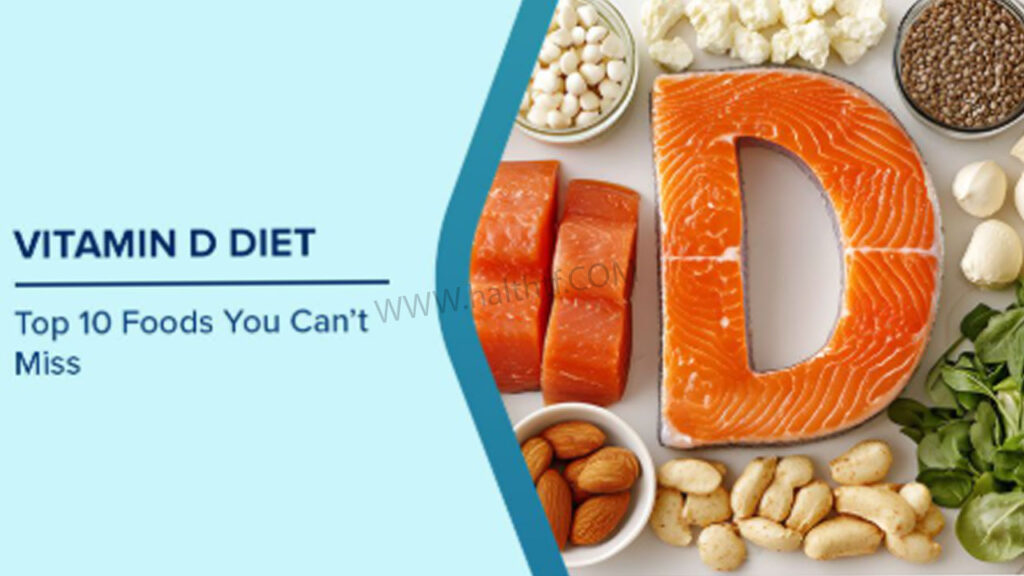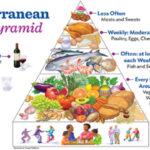Vitamin D, sometimes referred to as the “sunshine vitamin,” is critical for strong bones, a robust immune system and optimal muscle function. Unlike many nutrients, vitamin D is not heavily concentrated in most of the foods we eat, which can make it difficult to get enough of it.

One of the richest natural sources is from exposure to sunlight itself. When your skin is exposed to the sun’s UVB rays, it generates vitamin D. And even 10–30 minutes of sunshine just a few times a week can help — although the amount varies depending on skin tone, time of year and where you live. But excessive sun exposure without protection can raise the risk of skin damage, so moderation is important.
Foods with vitamin D are fatty fish (such as salmon, mackerel, and sardines), egg yolks, fortified milk and orange juice and fortified cereals. Sunlight-exposed mushrooms are another plant-derived source.
Supplements are often advised for those who can’t get enough through sunlight and diet. The daily dose differs depending on age and health status, so consult with a healthcare provider before taking supplements.
Getting the right amount of vitamin D keeps bones healthy, lowers the risk of osteoporosis and aids in keeping your immune system hit through all seasons of the year.
Are You Getting Enough Vitamin B12?
Vitamin B12 is a key element for the normal formation of blood cells, nerve health, and the production of normal energy. Unlike certain other vitamins, B12 is not produced naturally in the body, so it needs to derive from diet or supplements. A lack can cause fatigue, weakness, memory problems, mood changes and, over time, even long-term nerve damage if it isn’t treated.
The richest sources of all natural vitamin B12 are animal foods, which are beef, lamb, chicken, turkey, trout, salmon, tuna, eggs and milk. For vegetarians, and especially vegans, getting enough B12 can be tough because plant-based foods don’t deliver this essential vitamin. But, there can be alternatives with fortified cereals, plant-based milks, and nutritional yeast.
Adults require around 2.4 micrograms of B12 per day, although requirements can be higher during pregnancy or while breastfeeding, and for some medical conditions. Older adults in particular are at risk of deficiency as the ability to absorb B12 from the diet diminishes with age.
If you have it”), a vegan or vegetarian diet, or often feel unexplained fatigue, numbness or trouble concentrating, you may need to get your B12 checked. In these cases, supplements or B12 injections by a health practitioner can help to keep levels optimal.
What Are Phytonutrients?
Phytonutrients, or phytochemicals, are naturally occurring chemicals in plants that give them color, flavor, and help them resist disease. Although not considered essential in the same way as those essential for life (vitamins and minerals), phytonutrients have been well-proven to provide significant “life-protecting” health benefits when consumed regularly.
They also serve as antioxidants, anti-inflammatory drugs, and immune stimulants, helping your body fight chronic diseases such as cancer, heart disease, and diabetes. Examples of include flavonoids, carotenoids, polyphenols and glucosinolates and Which such phytonutrients are found in various fruits, vegetables, grains or legumes.
For instance, carotenoids give carrots and sweet potatoes their vibrant orange hue and promote eye health. Flavonoids, which are in berries, citrus fruits and tea, have anti-inflammatory and heart-healthy effects. Glucosinolates found in cruciferous vegetables such as brussels sprouts and kale can aid the body’s detoxing ability.
One’s best bet to maximize phytonutrients is to consume a wide variety of colorful plant foods. The term “eat the rainbow” is just a simple way to keep in mind that different colour plants have different phytonutrients, which offer different benefits.
Phytonutrients Phytonutrients offer a crucial element in the prevention of long-term health problems caused by poor dietary habits now considered to be the most influential factor in overall health & well being.
Types of Fiber and Their Health Benefits
Dietary fiber is a form of carbohydrate present in small amounts in plant foods that the body cannot digest. Even though it is relatively undigested as it makes its way through the digestive system, fiber is extremely important for keeping you healthy. Broadly, fiber falls into 2 categories—soluble and insoluble fiber— and both have their own collections of benefits to offer.
Soluble fiber merges with water to create a soft-gel within the digestive system. It even aids in lowering cholesterol, controlling blood sugar and promoting satiety (the feeling of feeling full), which can help with weight management. Soluble fiber is found in foods such as oats, beans, lentils, apples, oranges and barley.
Soluble Vs Insoluble Fiber, On the other hand, insoluble fiber will not dissolve in water. By increasing the volume of stool, it helps to reduce the amount of time that waste products are in contact with the body and is essential for healthy digestion by not allowing constipation build and maintaining normal bowel movements. Good sources include whole grains, nuts, seeds, broccoli, carrots and other vegetables.
A well-rounded diet consists of both types of fiber. • Together, they are beneficial for gut health, reducing the risk of heart disease, helping to manage diabetes and sufficient for long-term weight management. Most adults require approximately 25–30 grams of fiber per day, though many do not meet that target. You can meet this goal easily by eating more fruits, veggies, legumes, and whole grains.


